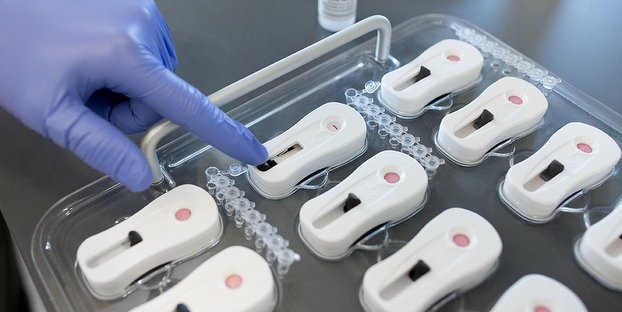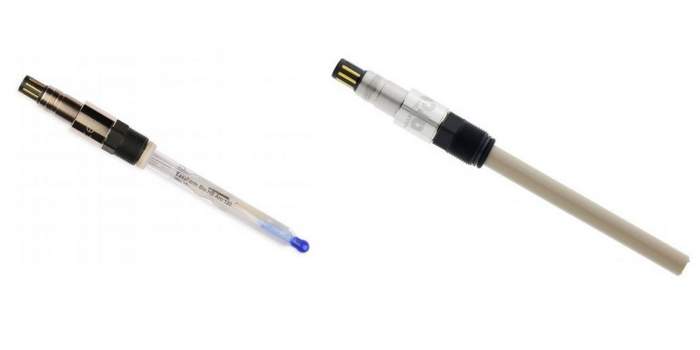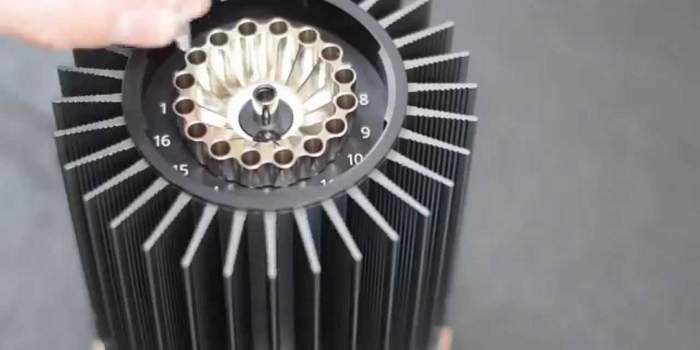
Quality is synonymous with craft beer. No one would mock the selection of an IPA by saying “oh, just having water today?” as they might if this hypothetical person ordered a Coors Light or Bud Light. But obviously not every craft beer is a winner either, especially as the market floods with new, aspiring breweries.
Every brewery, large and small, has its own challenges for brewing consistent beer and eradicating off-flavors. In fact, some of the craft beer industry’s most notable names have made big announcements this year regarding new quality assurance strategies and innovations.
Beer spoilage diagnostics
Victory Brewing announced a deal with Invisible Sentinel Inc., a life-sciences company that develops and manufactures rapid molecular diagnostics for the food and beverage industries. The two companies are working to develop a diagnostic assay that would detect beer-spoiling microbes.
The assay, which is called Veriflow brewPAL, will enable the rapid on-site detection of two types of bacteria, Pediococcus and Lactobacillus, which can affect the taste of beer. The partnership with Victory was established through Invisible Sentinel’s Custom Solution Program, a contract service that helps clients develop customized assays on the Veriflow platform.
“Brewing a great beer requires a dedication to quality assurance,” said Ron Barchet, CEO of Victory. “Invisible Sentinel brings to Victory the sort of innovation we’re always looking for to help us keep our edge.”
Current testing methods are laborious and time-consuming, with the consequence that corrective measures are delayed. The result for brewers can be spoilage, higher production costs and delayed product release.
Water purification
The Sierra Nevada Brewing Co. started using UV technology from Aquionics in order to break down unwanted by-products from the water purification process.
“By law [water] needs to be chlorinated prior to use,” said Aaron Porter, Sierra Nevada’s Plant Services Supervisor. “Water is the main ingredient of beer and, even though we have a great water source, That’s where the Aquionics UV technology plays its part – UV has proved to be highly effective at destroying any residual chlorine remaining in the process post-treatment. In this way, it ensures the consistent taste of our beer. We now have three Aquionics units performing this role.”
The company also has an Aquionics unit installed on its de-areation (DA) skid to disinfect the water returning to the storage tank — and while be doing the same in its new, fancy North Carolina brewing location.
Again, not all of these additional measures are fighting off-flavors and bacteria — just inconsistent beer. Oskar Blues, for example, was having trouble fully replicating its core beers at its new North Carolina location. That municipal water just isn’t the same as the mountain runoff the company usually dips into.
There wasn’t necessarily a magic bullet for the Oskar Blues team, as they sat in a room with petri dishes, beer and blindfolds and tried to figure out what to do. The answer for Oskar Blues was charcoal filtration in order to remove the extra chlorine.
Smaller scale solutions
Despite the hugeness of the above mentioned craft breweries, all touting their big quality implementations, there are plenty of great, smaller scale quality assurance solutions and strategies all over the industry. There is scalable technology, like Aber Instruments PerfectPitch, a mobile yeast pitching skid that can probe and factor in the on-line live yeast cell count, which greatly reduces the error rate in your yeast pitch. Or, put aside the machines and just gather your trusty expert tasting panel like Thirsty Dog Brewing in Akron, Ohio.
“At the start of brewing, our laboratory is set up so that we can propagate all of our yeast strains,” Najeway explained to WKYC in Cleveland. “Once the brewing process is done … the biologist kicks in again, because we start pulling samples from the fermenters.”
Every Friday, Thirsty Dog has a tasting panel, made up of biologists and brewmasters, who make sure all of the beers are spot on.
“We’re tasting it compared to the batch that’s coming out this week, compared to the batch that came out last week, and the batch that came out three months ago and six months ago,” he said.
Rachel Sutherland, quality and sensory manager for Innis & Gunn, told Craft Brewing Business earlier this year how its team was preparing to add its own in-house sensory panel as well.
Sutherland: At the moment, we don’t have an in-house sensory panel, and that’s a big part of my background, so that’s a focus this year. It’s to train and develop an in-house panel. Right now, we rely on an expert panel at the brewery, but we want to have people in the marketing and sales teams do it as well, so they can better understand the beers, so when they’re out there talking to people they’re not just reading from a set script, so they can recognize problems and properly describe the flavors of the beers.
What’s your latest quality assurance solution? Would love to hear what you are doing in order to keep brewing that perfect beer. Drop us a line at [email protected].




Craft breweries launching all kinds of quality control concepts http://t.co/UxUtGnKPZ8 via @craftbrewingbiz #craftbeer #QC
Quality is synonymous with craft beer. No one would mock the selection of an IPA by saying “oh, just having water… http://t.co/oQogOVQ8Co
Awesome #QualityControl in place at #CraftBreweries @SierraNevada @thirstydogbeer @victorybeer http://t.co/Z9MdHlryf7 #CraftBeer
Robert TheException Moreland liked this on Facebook.
Craft breweries launching all kinds of quality control concepts http://t.co/Rkl2SS1RYk via @craftbrewingbiz
Jared Read liked this on Facebook.